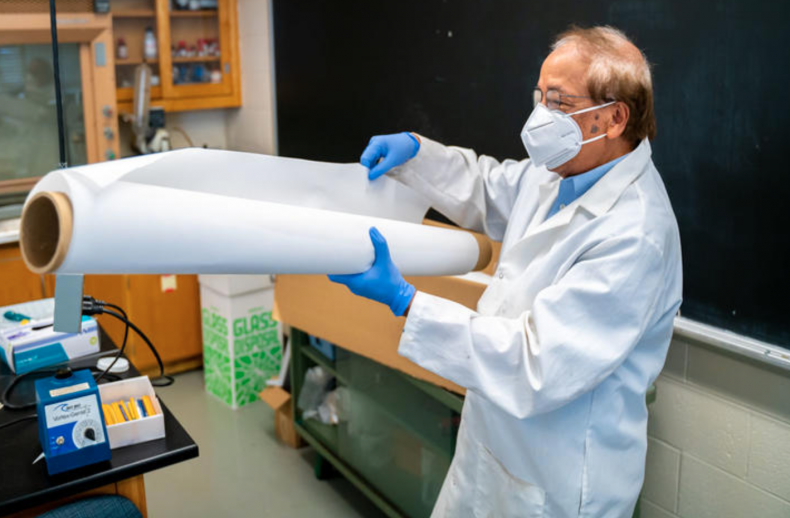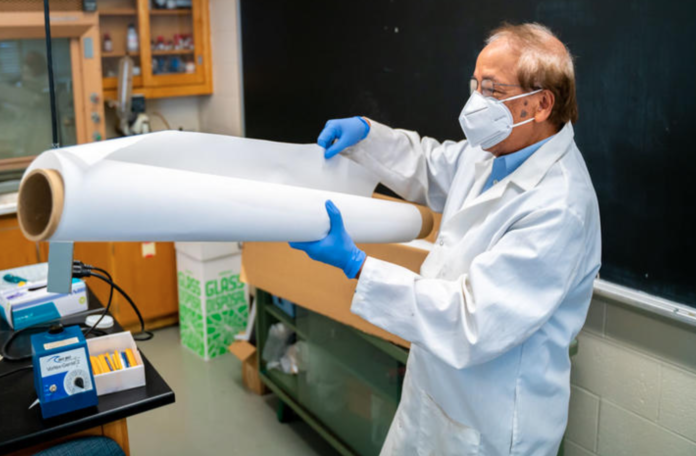Researchers at the University of Kentucky are working on developing a face mask that could kill the coronavirus on contact.
Dibakar Bhattacharyya, a chemical engineering professor who is the director of the university’s Center of Membrane Sciences, recently said that he had come up with an idea for mask that would “capture and deactivate” SARS-CoV-2, the virus that causes COVID-19.
Bhattacharyya has now secured a $150,000 grant from the National Science Foundation (NSF) to develop the masks, according to the university. Bhattacharyya, who will serve as the principal investigator on the research team, said it would take around six months to create the finished and tested membrane mask.
The work would then be facilitated through a large-scale membrane manufacturer, the university said.
Bhattacharyya explained that the masks will feature enzymes that will attach to the protein spikes on the coronavirus and separate them, thus killing the virus.
“The novel coronavirus is covered in club-shaped ‘s-protein’ spikes, which give it its crownlike, or coronal, appearance,” he said. “The protein spikes are also what allows the virus to enter host cells once in the body. This new membrane will include proteolytic enzymes that will attach to the protein spikes of the coronavirus and separate them, killing the virus.”
He also said that by capturing coronavirus on their surface, the masks would reduce the number of virus particles in the air that could infect others in the vicinity.
“We have the capability to create a membrane that would not only effectively filter out the novel coronavirus like the N95 mask does, but deactivate the virus completely,” Bhattacharyya said.

Ben Corwin/Research Communications
“This innovation would further slow and even prevent the virus from spreading. It would also have future applications to protect against a number of human pathogenic viruses.”
Bhattacharyya told Lex18 the masks would be very thin and people would be able to breathe “very easily” while wearing them. They could also potentially change colors when coronavirus is detected, he said.
Bhattacharyya is collaborating with engineering professors J. Todd Hastings and Thomas Dziubla, as well as Yinan Wei from the university’s Department of Chemistry, on the project.
He said the team’s collaboration across disciplines is a testament to the innovative and spirit of the university, as well as its service-centered mission.
“At the University of Kentucky, we have great resources at our fingertips and many opportunities to engage in cutting-edge research across disciplines,” Bhattacharyya said.
“Our researchers work together and lend their expertise to solve challenges for the greater good of humanity, not only at a time like this, but every day.”






